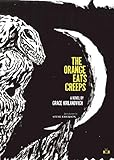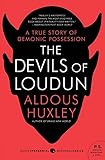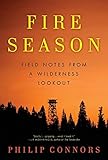I’ve always loved recommending books to people. At parties, I’ve been known to hold hostages in front of my bookshelves. I have, however, always preferred to let the books speak for themselves. I like sharing passages more than impressions, and I think that’s the best route to take.
I read some great books in 2011. Below, I’d like to share some with you. Think of this as me standing in front of my bookshelf, pulling out some titles as I ramble on, and then opening to pages I think you should read. Don’t worry. I’ll hold your drink.
 The Orange Eats Creeps, Grace Krilanovich — A book that grew in my mind after I finished it. I remember opening my mouth a lot as I read it, nodding unconsciously, losing focus on the narrative to admire the prose. To read Krilanovich’s book is to be hypnotized. Now, months later, I recall bits of phrases, such as how one drug-addled punk’s eyebrows fluttered and raised like a manic toilet flusher. That’s the language she used.
The Orange Eats Creeps, Grace Krilanovich — A book that grew in my mind after I finished it. I remember opening my mouth a lot as I read it, nodding unconsciously, losing focus on the narrative to admire the prose. To read Krilanovich’s book is to be hypnotized. Now, months later, I recall bits of phrases, such as how one drug-addled punk’s eyebrows fluttered and raised like a manic toilet flusher. That’s the language she used.
Excerpt: Our town is doomed. We’re just hanging out waiting till it turns into the next thing, then we’ll go to sleep. Just build your shit around us, we’ll only go out at night anyway… The town slipped in and out of consciousness, depending on where you went. All the little twigs scraped at the ground like lace fans spread at the sun.
 Buckdancer’s Choice, James Dickey — Dickey’s best known work is the film adaptation of Deliverance. In particular, his best known work is that one scene from Deliverance. Less known but nonetheless incredible is the man’s verse. A true American master, Southern or otherwise. These poems will inhabit you, and you’ll return to them often, and be better for it.
Buckdancer’s Choice, James Dickey — Dickey’s best known work is the film adaptation of Deliverance. In particular, his best known work is that one scene from Deliverance. Less known but nonetheless incredible is the man’s verse. A true American master, Southern or otherwise. These poems will inhabit you, and you’ll return to them often, and be better for it.
Excerpt from “The Firebombing”:
But in this half-paid-for pantry
Among the red lids that screw off
With an easy half-twist to the left
And the long drawers crammed with dim spoons,
I still have charge — secret charge—
Of the fire developed to cling
To everything: to golf carts and fingernail
Scissors as yet unborn tennis shoes
Grocery baskets toy fire engines
New Buicks stalled by the half-moon
Shining at midnight on crossroads green paint
Of jolly garden tools red Christmas ribbons:
Not atoms, these, but glue inspired
By love of country to burn,
The apotheosis of gelatin.
 The Devils of Loudun, Aldous Huxley — Everyone knows Brave New World, but few have read Huxley’s historical nonfiction. Primarily about a French Jesuit priest’s sex scandal turned witch hunt turned public execution, The Devils of Loudun is also an interesting glimpse into Huxley’s ruminations on religion and mysticism before he experimented with mescaline. The work he wrote immediately after this one was The Doors of Perception, and you can see the beginnings of those thoughts here.
The Devils of Loudun, Aldous Huxley — Everyone knows Brave New World, but few have read Huxley’s historical nonfiction. Primarily about a French Jesuit priest’s sex scandal turned witch hunt turned public execution, The Devils of Loudun is also an interesting glimpse into Huxley’s ruminations on religion and mysticism before he experimented with mescaline. The work he wrote immediately after this one was The Doors of Perception, and you can see the beginnings of those thoughts here.
Excerpt: Sex can be used either for self-affirmation or for self-transcendence — either to intensify the ego and consolidate the social persona by some kind of conspicuous “embarkation” and heroic conquest, or else to annihilate the persona and transcend the ego in an obscure rapture of sensuality, a frenzy of romantic passion or, more credibly, in the mutual charity of the perfect marriage.
 If on a winter’s night a traveler, Italo Calvino — This book will hurt your head in the best way possible.
If on a winter’s night a traveler, Italo Calvino — This book will hurt your head in the best way possible.
Excerpt: You are about to begin reading Italo Calvino’s new novel, If on a winter’s night a traveler. Relax. Concentrate. Dispel every other thought. Let the world around you fade. Best to close the door; the TV is always on in the next room. Tell the others right away, “No, I don’t want to watch TV!” Raise your voice — they won’t hear you otherwise — “I’m reading! I don’t want to be disturbed!” Maybe they haven’t heard you, with all that racket; speak louder, yell: “I’m beginning to read Italo Calvino’s new novel!” Or if you prefer, don’t say anything; just hope they’ll leave you alone.
 The Avian Gospels, Adam Novy — A man and his son can control birds. A judge is out to get them. War is perennial. If you’ve watched this video of a murmuration of starlings, you understand the beauty of bird swarms. If you read the book’s opening passage, you’ll want to read more.
The Avian Gospels, Adam Novy — A man and his son can control birds. A judge is out to get them. War is perennial. If you’ve watched this video of a murmuration of starlings, you understand the beauty of bird swarms. If you read the book’s opening passage, you’ll want to read more.
Excerpt: So many buildings had already been destroyed, the solitary walls like ruins submerged in flames, the city like an ocean of flames. Circles of maniacs prayed in the middle of the streets, and flapped their arms like birds. Teenage conscripts lay trapped beneath rubble, crying for their mothers, while comrades tried to get them out. Cats hauled their kittens through the ruins, and vultures swooped to seize them; a donkey gave birth inside a restaurant where dogs sipped at puddles of champagne, and cut their paws on broken bottles. Explosions shook the Earth; Katherine hardly kept her balance. Cobblestones zoomed past her head. A girl tried to carry a newborn foal on her back. Whoever won the war would rule ruins, be the king of stones and buzzards. Fires hurled themselves against the sky, as if in rapture, the city a cathedral of flame, flames like penitents to the sky. An elderly man thought his beard was in flames, and slapped at his face as he ran, calling, It burns! It burns! Men writhed on spears which had been rammed into the ground in perfect rows, a field of pain. Women carried infants like footballs. Birds choked on smoke and died mid-flight, raining in a deathstorm.
 Blood-Horses: Notes of a Sportswriter’s Son, John Jeremiah Sullivan — When I read the much-deserved hype pieces about Pulphead, I was disappointed by their failure to mention this book. Blood-Horses is, like most of Sullivan’s writing, a memoir that feels like it’s about you. It’s about horses, yes, but it’s also about a young man and his father, about the concept of bloodlines, and about the pursuit of beauty and perfection in the natural world.
Blood-Horses: Notes of a Sportswriter’s Son, John Jeremiah Sullivan — When I read the much-deserved hype pieces about Pulphead, I was disappointed by their failure to mention this book. Blood-Horses is, like most of Sullivan’s writing, a memoir that feels like it’s about you. It’s about horses, yes, but it’s also about a young man and his father, about the concept of bloodlines, and about the pursuit of beauty and perfection in the natural world.
Excerpt: There is a passage on the tape [of Secretariat’s 1973 Belmont win] that I noticed only after watching it dozens of times. It occurs near the end of the race. The cameraman has zoomed up pretty close on Secretariat, leaving the lens just wide enough to capture the horse and a few feet of track. Then, about half a furlong before the wire (it is hard to tell), the camera inexplicably stops tracking the race and holds still. Secretariat rockets out of the frame, leaving the screen blank, or rather filled with empty track. I timed this emptiness — the space between Secretariat exiting and Twice a Prince entering the image — with my watch. It lasts seven seconds. And somehow each of these seconds says more about what made Secretariat great than any shot of him in motion could. In the history of profound absences — the gaps in Sappho’s fragments, Christ’s tomb, the black panels of Rothko’s chapel — this is among the most beautiful.
 Packing For Mars, Mary Roach — I’m a sucker for well-written science books. Susan Casey’s The Devil’s Teeth explained scientific fact in a way I could grasp: she has a line about sharks predating trees. Roach writes like she taught Casey everything she knows. This book was a delight.
Packing For Mars, Mary Roach — I’m a sucker for well-written science books. Susan Casey’s The Devil’s Teeth explained scientific fact in a way I could grasp: she has a line about sharks predating trees. Roach writes like she taught Casey everything she knows. This book was a delight.
Excerpt: You never think about the weight of your organs inside you. Your heart is a half-pound clapper hanging off the end of your aorta. Your arms burden your shoulders like buckets on a yoke. The colon uses the uterus as a beanbag chair. Even the weight of your hair imparts a sensation on your scalp. In weightlessness, all this disappears. Your organs float inside your torso. The result is a subtle physical euphoria, an indescribable sense of being freed from something you did not realize was there.
 Orientation and Other Stories, Daniel Orozco — I wanted to dislike this book. I always feel cheated when a publisher releases a collection of stories I’ve read before, and I feel doubly cheated when the author is mostly famous for a single story he wrote more than a decade ago. (“Orientation,” by the way, is only the second most depressing thing about office life I read this year. Early in January, I found Theodore Roethke’s “Dolor.”) The point is that I went into this book hating it. I was proven so, so wrong. Read “Shakers” and you’ll know why.
Orientation and Other Stories, Daniel Orozco — I wanted to dislike this book. I always feel cheated when a publisher releases a collection of stories I’ve read before, and I feel doubly cheated when the author is mostly famous for a single story he wrote more than a decade ago. (“Orientation,” by the way, is only the second most depressing thing about office life I read this year. Early in January, I found Theodore Roethke’s “Dolor.”) The point is that I went into this book hating it. I was proven so, so wrong. Read “Shakers” and you’ll know why.
Excerpt: When they hit, rats and snakes hightail it out of their burrows. Ants break single-file ranks and scatter blind, and flies roil off garbage bins in shimmering clouds. On the Point Reyes Peninsula, milk cows bust out of feed sheds and bolt for open pasture. Inside aquariums in dentist offices and Chinese restaurants and third-grade classrooms, fish huddle in the corners of their tanks, still as photos of huddled fish. Inside houses built on the alluvial soils of the Sacramento Delta, cockroaches swarm from behind walls, pouring like cornflakes out of kitchen cabinetry and rising in tides from beneath sinks and tubs and shower stalls. Crows go mute. Squirrels play possum. Cats awaken from naps. Dogs guilty of nothing peer guiltily at their masters. Pigeons and starlings clatter fretfully on the eaves and cornices of buildings, then rise en masse and wheel away in spectacular rollercoaster swoops…
 Fire Season: Field Notes from a Wilderness Lookout, Philip Connors — Reading this book was an exercise in personal restraint. Resisting the urge to read too rapidly, as I wanted to savor the experience. Restraining my jealousy for Connors’ apparently marvelous life. Resisting the urge to drop what I was doing, pack my bags, hit the Gila Forest, and embark on a career in fire watching.
Fire Season: Field Notes from a Wilderness Lookout, Philip Connors — Reading this book was an exercise in personal restraint. Resisting the urge to read too rapidly, as I wanted to savor the experience. Restraining my jealousy for Connors’ apparently marvelous life. Resisting the urge to drop what I was doing, pack my bags, hit the Gila Forest, and embark on a career in fire watching.
Excerpt: As in Frisbee golf, so in hiking: the movements of my limbs help my mind move too, out of its loops and grooves and onto a plane of equipoise. I have been followed all my life, in the chaos of my thoughts, by a string of words: song lyrics, nonsense phrases, snatches of remembered conversation, their repetition a kind of manic incantation, a logorrhea in the mind, and all of them intermingled with sermons and soliloquies– the spontaneous talker weaving his repetitive spell. At other times, tired of words themselves but intrigued by their internal mechanics, I find myself unconsciously counting syllables in sentences, marking each one by squeezing the toes on first my right foot, then my left, back and forth in order to discern whether the final tally is an even or an odd number. (Eighty. Even.)
 Lolita, Vladimir Nabokov — This book is one everyone knows but few have actually read. (Moby-Dick is the exemplar of this type.) I’m actually glad I put off reading this one for as long as I did. I feel like its significance was built up so high– my expectations were built up so high — that when the book met and exceeded all of these things, it was all the more impressive. Much is said about Nabokov’s linguistic acrobatics, and his artistry is a highlight of this book, but less is said about Nabokov’s ability to wax terrifying and then suddenly hysterical within a few pages. This book is wickedly funny, but it’s also just wicked.
Lolita, Vladimir Nabokov — This book is one everyone knows but few have actually read. (Moby-Dick is the exemplar of this type.) I’m actually glad I put off reading this one for as long as I did. I feel like its significance was built up so high– my expectations were built up so high — that when the book met and exceeded all of these things, it was all the more impressive. Much is said about Nabokov’s linguistic acrobatics, and his artistry is a highlight of this book, but less is said about Nabokov’s ability to wax terrifying and then suddenly hysterical within a few pages. This book is wickedly funny, but it’s also just wicked.
Excerpt: We came to know the curious roadside species, Hitchhiking Man, Homo pollex of science, with all its many sub-species and forms: the modest soldier, spic and span, quietly waiting, quietly conscious of khaki’s viatic appeal; the schoolboy wishing to go two blocks; the killer wishing to go two thousand miles; the mysterious, nervous, elderly gent, with brand-new suitcase and clipped mustache; a trio of optimistic Mexicans; the college student displaying the grime of vacational outdoor work as proudly as the name of the famous college arching across the front of his sweatshirt; the desperate lady whose battery has just died on her; the clean-cut, glossy-haired, shifty-eyed, white-faced young beasts in loud shirts and coats, vigorously, almost priapically thrusting out tense thumbs to tempt loose women or sad-sack salesmen with fancy cravings.
More from A Year in Reading 2011
Don’t miss: A Year in Reading 2010, 2009, 2008, 2007, 2006, 2005
The good stuff: The Millions’ Notable articles
The motherlode: The Millions’ Books and Reviews
Like what you see? Learn about 5 insanely easy ways to Support The Millions, The Millions on Twitter, Facebook, Tumblr.










